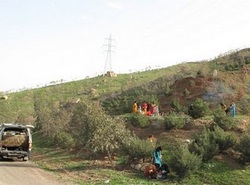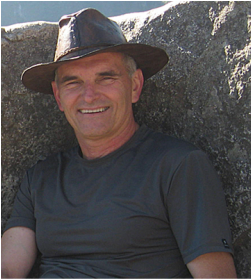|
This is your new blog post. Click here and start typing, or drag in elements from the top bar.  Today four of us hop in an SUV driven by a MercyCorps driver, and take a 2 hour drive to Kalar, a small town near the disputed border between the Kurdish territory in Iraq, and the rest of Iraq, run by the Shiite-led government. As we move out of the town of Sulaymaniyah,, my main base camp, the mountains surrounding us grow, until we begin to pass through a valley that has the look and feel of parts of Central Washington, with small jagged cliffs. It’s the start of the New Year here, 2071, and the valley is dotted with families who have pulled their cars off to the side of the road, quite randomly it seems to me, and are dancing, building fires and sitting on the ground chatting away. There are few national or local parks anywhere to be found, so people seem to just go into the countryside and hang. We drive through a series of checkpoints run by the Kurdish police. They all know our driver who lives in this valley, and wave him through at each point, while other cars are stopped, despite having two gringos in the car, who stick out like sore thumbs in an area that is virtually 100% Kurdish. “This is the last place on earth where you can find people who just love George Bush”, I am told by the Director of a local humanitarian organization stationed in Kalar, the town we settle in tonight. The sentiment echoes what I have been hearing from others in northern Iraq, Kurdish-country, the past few days. “I was utterly hopeless before. Now I have hope”, Mohammed states, a bright, engaging man who lives here and shares a dinner with me. “Yes, its true Bush invaded Iraq, and may have done so for oil or other reasons that were not right, but now we can live a life, and before we could not.” Bush as a beacon of hope. It is a hard pill for me to swallow, yet here it is, clear and true. The younger Iraqi students we meet with today, 13-15 year olds, uniformly say how much they value freedom, and a good life. “Here people throw garbage in the street, children are not in school and need to get back in. In America, this does not happen, and people can do what they want”. We suggest they discuss this with their American counterparts when they go on-line this week. “You may be surprised by what you learn,” I say. They stare back with a look of skepticism in their eyes...
1 Comment
Leave a Reply. |
AuthorGreg Tuke teaches and travels internationally, working with university faculty in India, Indonesia and the MIddle East, sharing strategies for implementing international collaborations within course work. This blog chronicles key experiences and insights about those experiences. All opinions expressed are mine, and represent no other institutional affiliation. Archives
March 2020
Categories |


 RSS Feed
RSS Feed